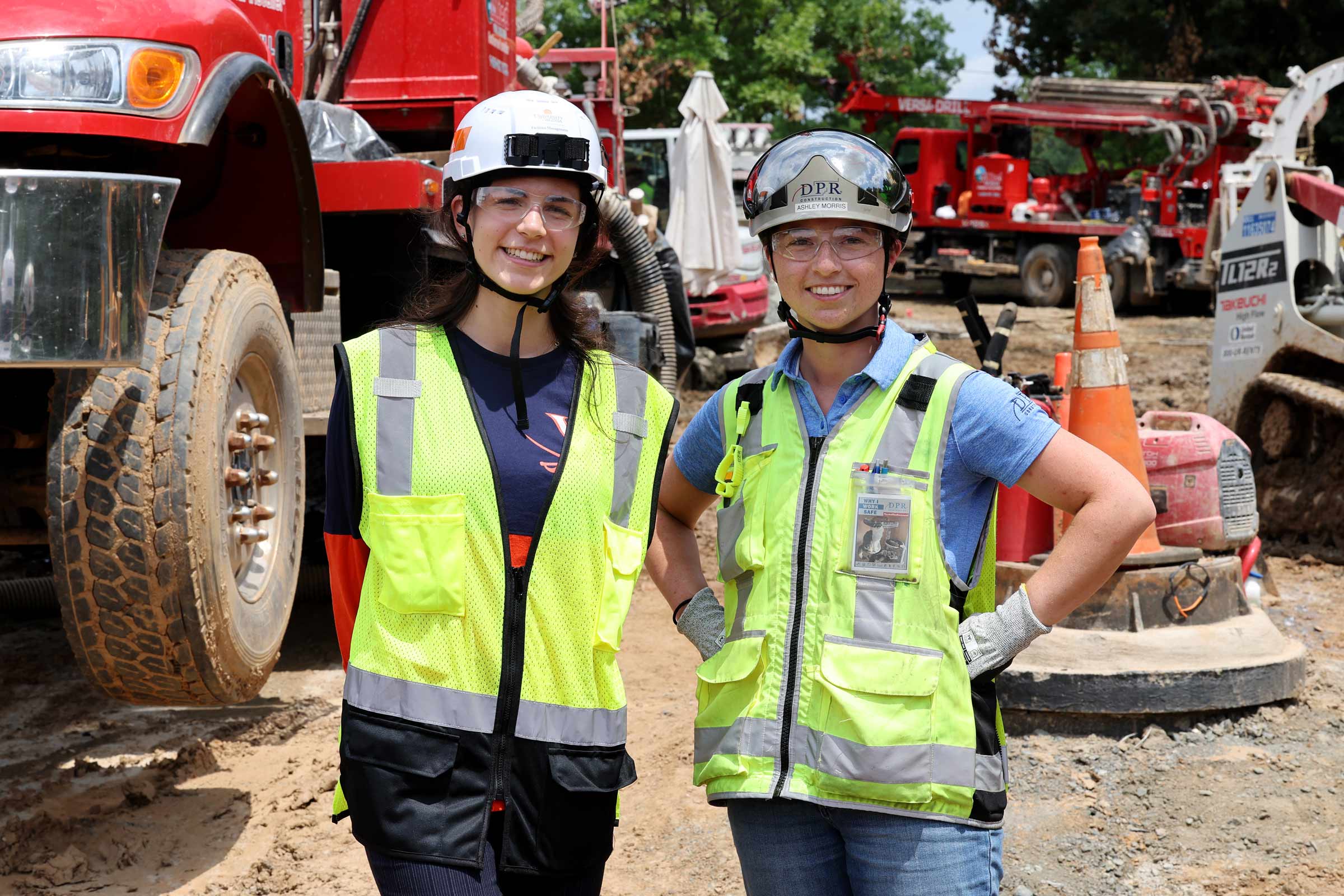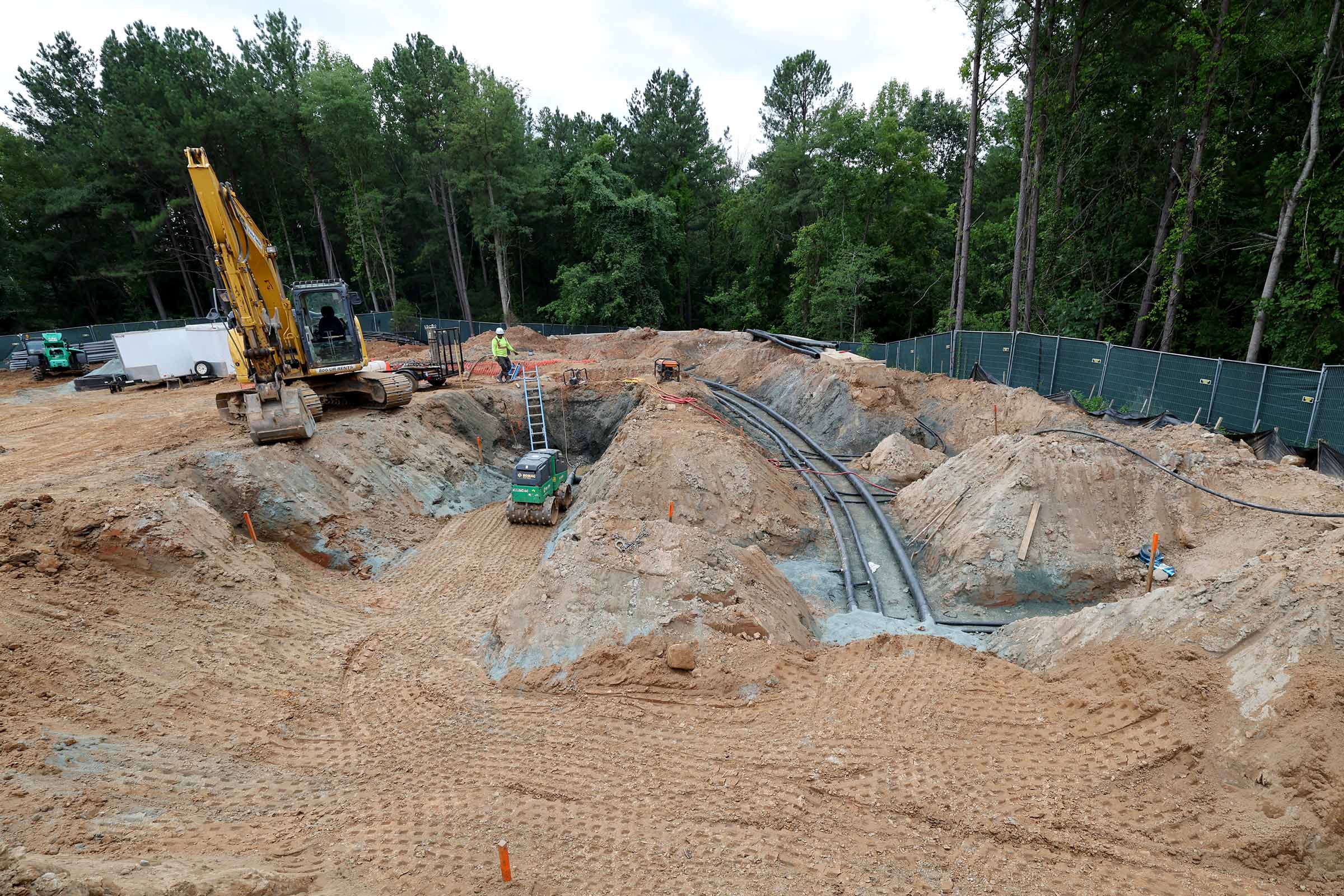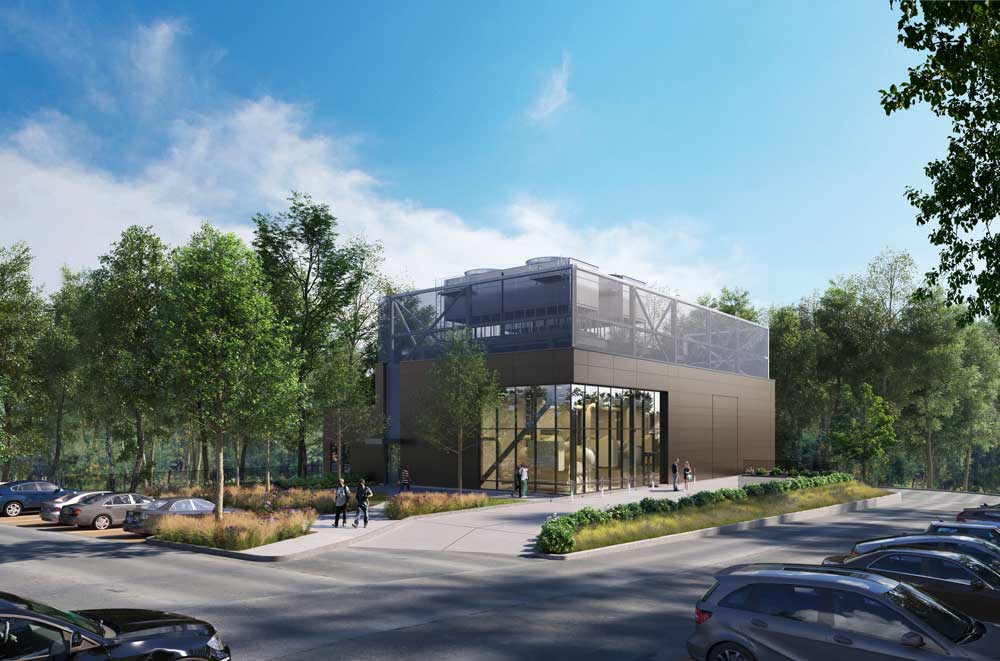The University of Virginia is building a ground-breaking energy plant that will essentially gather wasted heat and store it in subterranean wells until it’s needed again.
The plant that construction crews are building in the Fontaine Research Park will supply thermal energy to the Paul and Diane Manning Institute of Biotechnology. Because 90% of the University’s fossil fuel consumption is used for heat, employing new and efficient technologies will help the University toward its goal of being carbon neutral by 2030 and fossil fuel-free by 2050.
The Fontaine plant won’t burn fossil fuels to create heat, said Paul Zmick, director of energy and utilities at the University. Rather, the facility is a geoexchange system that, in simple terms, captures heated water, stores it underground and retrieves it when it’s needed to provide heating or cooling to a facility. Initially, the plant will utilize about 100 underground storage wells. The geoexchange system is essentially a very large thermal battery.












